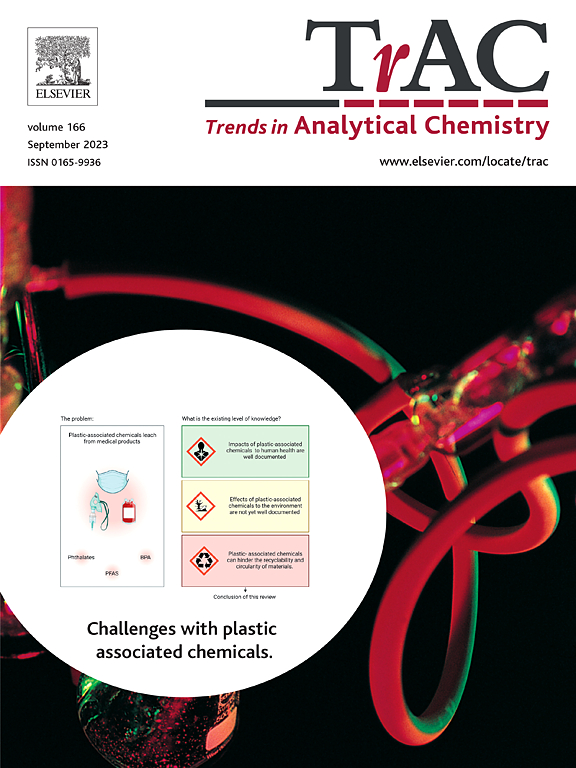监测环境金属污染物的机器学习方法:来源分配、检测、量化和风险评估方面的最新进展
IF 11.8
1区 化学
Q1 CHEMISTRY, ANALYTICAL
引用次数: 0
摘要
金属污染物对人类健康和环境构成重大而持久的威胁,这主要是因为它们具有不可生物降解的特性。对这些污染物的传统监测涉及昂贵而耗时的分析方法。然而,这种传统方法难以把握金属与影响污染动态的因素之间错综复杂的非线性联系。机器学习(ML)已成为一种有前途的解决方案,它能够处理大型数据集、各种输入和复杂模式。本综述重点介绍了开发创新型 ML 模型监测金属污染物的心得。综述首先概述了为此目的常用的 ML 算法,然后全面探讨了各种环境矩阵中 ML 应用的最新进展。它涵盖了固体、水和空气中的来源分配、检测、量化和生态风险评估。综述还指出了研究空白,并提出了最大限度发挥 ML 在预防和管理环境金属污染方面潜力的未来方向。本文章由计算机程序翻译,如有差异,请以英文原文为准。
Machine learning approaches for monitoring environmental metal pollutants: Recent advances in source apportionment, detection, quantification, and risk assessment
Metal pollutants pose significant and enduring threats to human health and the environment, mainly due to their non-biodegradable nature. Traditional monitoring of these pollutants involves costly and time-consuming analytical methods. However, this conventional approach struggles to grasp the intricate and nonlinear connections between metals and the factors affecting pollution dynamics. Machine learning (ML) has emerged as a promising solution, capable of handling large datasets, diverse inputs, and complex patterns. This review highlights insights from developing innovative ML models to monitor metal pollutants. Beginning with an overview of commonly used ML algorithms for this purpose, the review comprehensively explores recent advancements in ML applications across various environmental matrices. It covers source apportionment, detection, quantification, and ecological risk assessment in solids, water, and air. The review also identifies research gaps and proposes future directions for maximizing ML's potential in preventing and managing environmental metal pollution.
求助全文
通过发布文献求助,成功后即可免费获取论文全文。
去求助
来源期刊

Trends in Analytical Chemistry
化学-分析化学
CiteScore
20.00
自引率
4.60%
发文量
257
审稿时长
3.4 months
期刊介绍:
TrAC publishes succinct and critical overviews of recent advancements in analytical chemistry, designed to assist analytical chemists and other users of analytical techniques. These reviews offer excellent, up-to-date, and timely coverage of various topics within analytical chemistry. Encompassing areas such as analytical instrumentation, biomedical analysis, biomolecular analysis, biosensors, chemical analysis, chemometrics, clinical chemistry, drug discovery, environmental analysis and monitoring, food analysis, forensic science, laboratory automation, materials science, metabolomics, pesticide-residue analysis, pharmaceutical analysis, proteomics, surface science, and water analysis and monitoring, these critical reviews provide comprehensive insights for practitioners in the field.
 求助内容:
求助内容: 应助结果提醒方式:
应助结果提醒方式:


